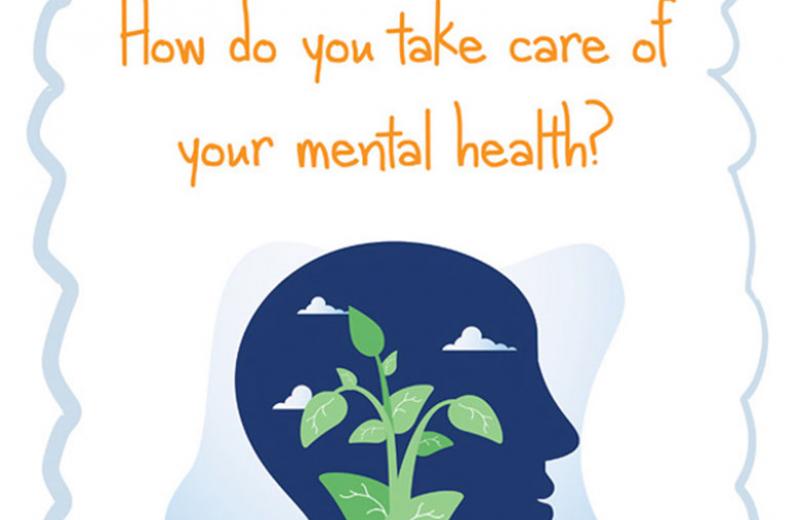We asked — you delivered! During our recent Youth Mental Health campaign (held on Northern Health’s Facebook and Instagram accounts), youth and those who care for them followed along and engaged with energy and enthusiasm. We want to share some of the great ways people are taking care of their mental health. Thanks to all who participated!
Your comments – here’s what you said about how you take care of your mental health:
Communicating
“Communicating how I’m feeling – the good, the not so good, and the downright difficult.”
“Journaling, talking, finding a therapist, daily logs.”
“Reaching out when I know it’s necessary, so I don’t stagnate in a depressed state.”
“Talk to someone – so I don’t feel alone.”
“Express myself and my emotions.”
Goal-setting and planning ahead
“Meet your obligations – regardless of how you feel.”
“I always make it to work and school on time every day. Seems small, but it makes me feel like I’m accomplishing something small every day.”
“Keeping a list of daily to-do tasks (and check them off): showers, medication, guitar, stretching.”
“Plan what I’m going to do after class, and build a routine that works for you!”
Connecting – to people, culture, nature, and animals
“Spend time with goofy people in my life, or people who are generally happy makes me feel better in the long run too.”
“Spending time with dogs — walking them brings them joy which makes me feel good. The exercise also boosts my mood even though it’s not something I like doing.”
“Keep family and friends around who I can talk with honestly and will be open with me. FaceTime, call, visit – connect however you like, but please reach out.”
“Connect to culture, pray or help those in need.”
“Having an amazing social support network that I am an equally supportive person to my friends too.”
Self-Care
“Not put everyone else before myself. No matter how much you love your peers, you are your number one priority.”
“Make a conscious effort not to isolate.”
“Listen to your mind, body, and heart – if you feel overwhelmed or stressed, respect that or take a break if things are frustrating.”
“Look at my scars and credit myself for what I have gone through and survived. I didn’t give up and it was the best decision I ever made because I would have missed out on the best year of my life so far.”
“Validate my own feelings. What I’m feeling in the moment doesn’t define the entirety of my life or being. It’s not realistic to be happy all the time.”
“SLEEP!”
Invite activity into your day!
“Going to the gym. Exercise keeps me focused, happy and healthy. When I have a stressful day or feel pressure from university, I head to the gym to sweat it out.”
“Stretching, yoga, meditation, team sports – it all helps.”
“Listen to calming music, practice gratitude, draw, read, write, go for a drive, take a bath.”
“Get a new hobby.”
“Cleaning and organizing (a drawer, bathroom, inside of car).”
Treatment/Recovery Work
“Visiting my psychiatrist, therapist, clinician regularly.”
“Mood tracking and keeping thoughts positive.”
“Sticking to my recovery plan (medication regime, activity, sleep, social connections).”
“Taking my medication at a designated time every day to make sure I don’t forget.”
“Keep a journal or notebook so I can keep track of symptoms and possible triggers.”
“Be aware of mood and warning signs of relapse so I am able to take a step back and use some of my tools before it gets worse.”
Other bits of wisdom:
“Different things work for different people.”
“Remember that other people care.”
“Spend time with people who uplift you.”
“Over the years, I’ve tried everything to “fix” myself. I have changed my perspective and realized I don’t need fixing. I was just sick, but not in a way that is easy to diagnose or explain to a friend. After I accepted my mental illness, I retried some of the strategies such as journaling, being more active whether that be walking my dog or going to the gym, eating better and sticking to a routine.”
“Limit screen time.”
The campaign’s toolkit can be found on our website.














Comments